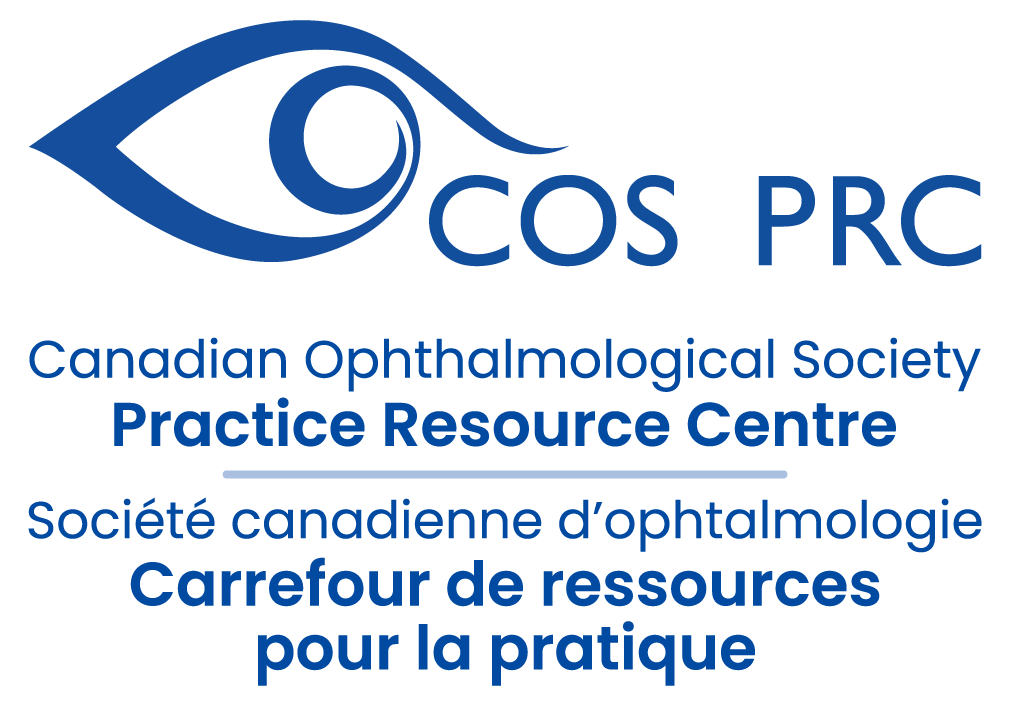
Background
A needs assessment was conducted to better understand the needs of Canadian ophthalmologists in the context of biosimilars. Biosimilars are biotherapeutic agents that aim to replicate the efficacy and safety profile of their reference biologic counterparts. They undergo rigorous testing to ensure comparable safety, efficacy, and quality. Biosimilars hold the potential to enhance patient access to essential medications and foster competition within the healthcare market.
The purpose of the needs assessment was to determine the necessity of educational programs and other assets to support ophthalmologists in effectively navigating biosimilars.
Ophthalmologists’ Knowledge and Practices
Ophthalmologists are becoming more aware of biosimilars but there is still some hesitancy in adopting their widespread usage. In order to better understand their perspectives, COS conducted 2 surveys – one in English and one in French.
Online surveys were distributed to ophthalmologists across Canada. There was an overall completion rate of 76% (95 complete, 30 partial responses out of 125 total). The English survey had representation from multiple provinces, with the highest being Ontario. The French survey respondents were 100% from Quebec. Despite some provincial skewing, participation was geographically diverse offering a comprehensive view.
The findings revealed that while awareness of biosimilars for anti-VEGF treatments stood at 61.1%, actual usage was notably lower, with only 26.1% of respondents having utilized biosimilars. Preparedness to incorporate biosimilars into practice varied among ophthalmologists, with larger studies, longer-term analyses, and real-world evidence identified as factors that could increase comfort levels with biosimilar adoption.
Interest in educational initiatives was pronounced, with respondents expressing a desire for webinars, online seminars, clinical practice guidelines, and increased educational meetings or journal clubs. However, concerns persisted regarding limited understanding of safety and efficacy, restricted access to information, and uncertainty surrounding regulatory standards and approval processes.
Perceptions and Concerns about Biosimilars
Ophthalmologists voiced nuanced opinions regarding the approval process and the likelihood of biosimilar adoption. Notably, 80% of respondents advocated for implementation of larger clinical trials to ensure the safety and efficacy of biosimilar drugs. However, views on the likelihood of adopting biosimilars in the near future were mixed.
Open-ended responses underscored the diversity of opinions among ophthalmologists, with concerns ranging from safety and efficacy to the potential for cost savings and the necessity for additional evidence-based data. The influence of medication cost and the presence of patient support programs moderately affected decision-making processes. Uncertainty surrounding regulatory standards and approval processes emerged as a common concern.
Conclusions and Next Steps
The needs assessment’s key findings emphasize the imperative for further education, larger clinical trials, and real-world evidence to assuage concerns and enhance ophthalmologists’ comfort levels with biosimilars. These perspectives have tangible implications for decision making processes and the potential adoption of biosimilar drugs in ophthalmology.
Recommendations include the development of comprehensive educational initiatives, collaboration for larger studies, and the generation of real-world evidence to address ophthalmologists’ concerns effectively. Additionally, the establishment of an educational toolkit tailored to biosimilar usage in ophthalmic practice is recommended for guiding informed decision-making and ensuring patient safety.
This needs assessment was completed with an unrestricted educational grant with COS and Apotex, Biocon & Biogen and was planned to achieve scientific integrity, objectivity and balance.
Summary of Data
Awareness and Usage of Biosimilars
- 61.1% of ophthalmologists surveyed are aware of biosimilars for retinal conditions
- However, only 26.1% are currently using them in their practice
Likelihood of Using Biosimilars
- 51% said they are likely to start using biosimilars in their practice in the near future
- 49% said they are not likely to start using them
Factors to Increase Comfort Level with Biosimilars
- More educational meetings/journal clubs (56%)
- Real-world studies (46.2%)
- Longer-term studies (38.5%)
- Larger studies (29.7%)
Educational Interests
Ophthalmologists expressed interest in various educational modalities to increase their knowledge of biosimilars
- Webinars/online seminars (57.1%)
- Clinical practice guidelines (50.5%)
- Peer-reviewed journal and articles (39.6%)
- Case-based discussions/grand rounds (37.4%)
- Mentorship programs (26.4%)
To view the sources for this needs assessment, you can download them here:
We would like to take the opportunity to thank the scientific planning committee for conducting this needs assessment. To view their profiles, you can download the document here:



